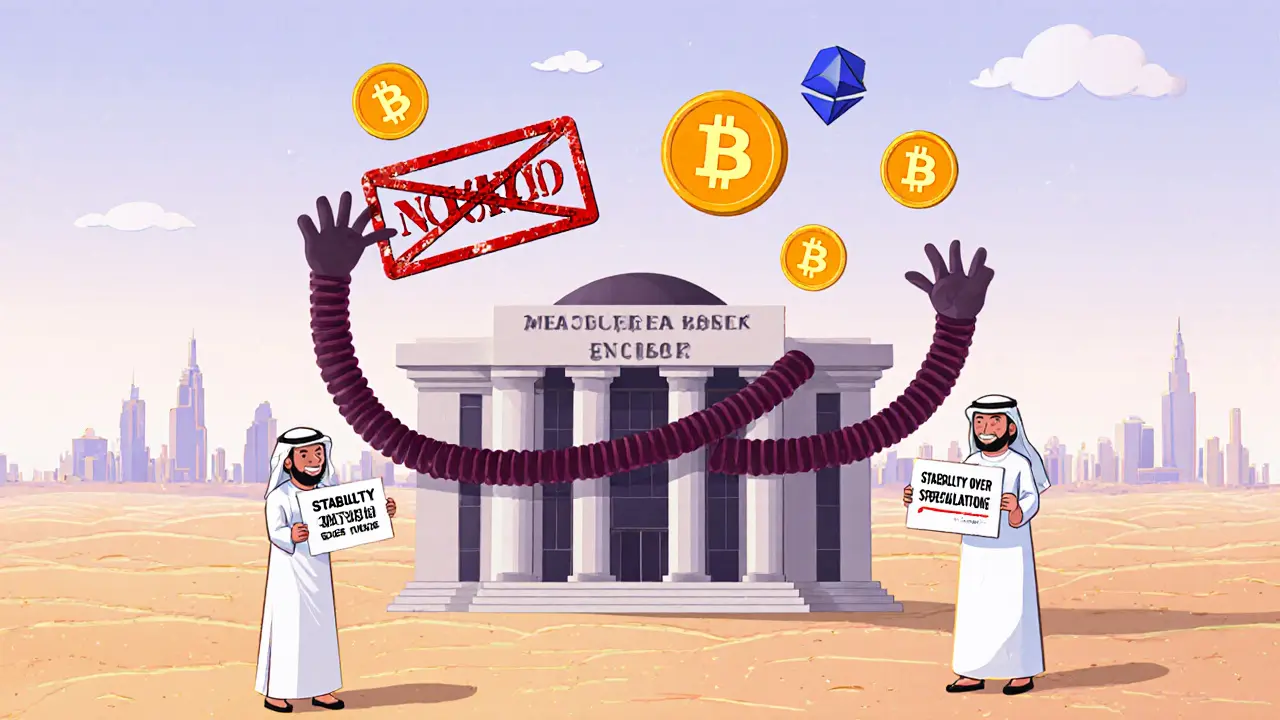Qatar Crypto Ban: What It Means for Users and Transactions
When you hear Qatar crypto ban, a government policy that prohibits financial institutions from processing cryptocurrency transactions. Also known as crypto restrictions in Qatar, it’s not a full outlawing of ownership—it’s a wall around banks, exchanges, and payment systems. Unlike China, where crypto is illegal from top to bottom, Qatar lets you hold Bitcoin or Ethereum in your wallet. But if you try to cash out through a bank, wire funds to a crypto exchange, or even use a debit card linked to your crypto holdings, the system shuts you down.
This ban is tied to Qatar’s central bank, the Qatar Central Bank, which controls all financial flows and sees crypto as a threat to monetary stability. The government doesn’t want its currency, the Qatari riyal, competing with decentralized networks. It also fears money laundering, especially with regional neighbors like the UAE and Saudi Arabia actively building crypto-friendly rules. So while you won’t get arrested for owning crypto, you can’t use it to pay for anything official—rent, bills, even luxury goods at high-end malls. Banks monitor accounts for crypto-related keywords and freeze them instantly if they spot activity.
The crypto banking Qatar, the system that blocks traditional financial institutions from interacting with digital assets forces users into risky workarounds: peer-to-peer trades, offshore exchanges, or crypto-friendly prepaid cards bought abroad. Some expats use VPNs to access foreign platforms, but that’s not legal either. The government hasn’t cracked down on individuals yet, but the rules are clear: if you’re caught using crypto through a bank, you risk fines, account closure, or worse.
Meanwhile, Web3 in Qatar, the broader ecosystem of decentralized tech, blockchain startups, and digital innovation isn’t dead—it’s just underground. A few local developers are building tools for private use, and some businesses quietly accept crypto for services outside the banking system. But without legal infrastructure, growth is stunted. You won’t find a crypto ATM in Doha, and no licensed exchange operates there. The country’s focus remains on its digital yuan-style project, the digital riyal, which gives the state full control over every transaction.
What you’ll find below are real stories and breakdowns of how people in restricted regions like Qatar survive under crypto bans. We cover how banks react when you try to move crypto to fiat, what alternatives actually work, and why some countries ban crypto while others embrace it. These aren’t theoretical guides—they’re maps drawn by people who’ve been through it. If you’re in Qatar, or just curious how crypto survives under pressure, these posts give you the unfiltered truth.
Qatar bans all institutional cryptocurrency activity for banks and financial firms, but allows tokenized securities under strict oversight. Learn how this unique regulatory model compares to the rest of the GCC in 2025.
